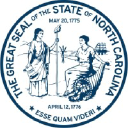Techical Service Delivery Manager

North Carolina Staffing
Technical Delivery Manager
We are seeking a Technical Delivery Manager to lead the end-to-end execution of high-impact, cross-functional initiatives within the Platform Services organization. This is a senior individual contributor role for someone who thrives in complex, technical environments and excels at translating strategic goals into coordinated, on-time delivery. The Technical Delivery Manager will operate as the execution backbone for platform initiatives—driving alignment across engineering, product, security, infrastructure, and compliance stakeholders. You will be responsible for managing technical delivery plans and capability roadmaps, surfacing risks early, resolving cross-team blockers, and ensuring accountability from idea through implementation.
This role requires a strong understanding of modern engineering practices, including cloud-native architectures, DevOps pipelines, automation platforms, and infrastructure delivery. The ideal candidate will not only manage timelines and milestones but also understand the technical context behind them, facilitating informed decisions, prioritization trade-offs, and progress with urgency and clarity. You'll work across multiple domains, including compute platforms, container orchestration, API gateways, CI/CD, secrets management, observability, and compliance tooling. Your ability to connect technical dependencies, manage ambiguity, and drive clear communications will be critical to ensuring enterprise platform services are delivered predictably, securely, and at scale.
This is a high-trust, high-autonomy role for a delivery leader who doesn't need positional authority to influence outcomes, and who brings equal comfort working with engineers, architects, product managers, and senior executives.
Program & Delivery Execution
Own delivery plans and quarterly roadmaps for platform initiatives—defining scope, milestones, dependencies, and critical paths across multi-team efforts. Facilitate execution for large cross-functional programs (e.g., cloud platform migrations, automation rollouts, observability frameworks, policy-as-code enforcement). Run planning, standups, backlog grooming, and retrospectives with a delivery-first mindset. Drive structured execution through frameworks like SAFe, Scrum, Kanban, or hybrid delivery models.
Technical Context & Coordination
Partner with engineering and architecture teams to understand solution architectures, surface technical dependencies, and preempt integration risks. Coordinate infrastructure provisioning, cloud resource dependencies, API interfaces, or migration activities across teams. Understand blockers at a systems level (e.g., IAM constraints, security reviews, cross-environment sequencing) and work them to resolution. Facilitating Program Increment (PI) Planning, Scrum of Scrums, and Inspect & Adapt workshops. Driving continuous improvement across Agile teams and ARTs.
Stakeholder Alignment
Act as the delivery point-of-contact for executive stakeholders, product managers, engineering leads, and governance teams. Track progress with clear metrics (burn down, velocity, risk register, % complete) and communicate status in an actionable, executive-friendly format. Manage stakeholder expectations with transparency and accountability—no surprises.
Operational Readiness
Ensure that delivery includes operational artifacts (runbooks, SLOs, documentation, compliance evidence). Partner with SRE, SecOps, and GRC to validate operational requirements are met pre-deployment. Coordinate release planning, change windows, and support readiness across environments. Tracking and reporting Agile Release Train (ART)-level metrics such as feature progress, team velocity, predictability, and risk burndown.
Essential duties and responsibilities include: performing problem tracking, diagnosis and root-cause analysis, replication, troubleshooting, and resolution for highly complex issues; overseeing others who perform programming and debugging activities; responding to issues in a timely manner by receiving and investigating incidents or service tickets; providing technical consultation on extremely challenging or unusual situations; leading large, complex projects related to improving processes or support capabilities; engaging and managing external vendors; interpreting internal/external business challenges and recommending best practices; using sophisticated analytical thought to exercise judgment and identify innovative solutions; mentoring less experienced teammates to build technical expertise; and potentially having people management responsibilities.
Required qualifications include a bachelor's degree and eight years of experience in development or production support or an equivalent combination of education and work experience. Preferred qualifications include seven or more years of experience in technical program or delivery management within enterprise IT, platform engineering, DevOps, or infrastructure organizations. Experience with cloud infrastructure, CI/CD pipelines, IaC & automation, container platforms, security & observability, and tools like Jira, Rally, Confluence is also preferred.
Other job requirements/working conditions include sitting frequently, lifting up to 25 lbs., visual/audio/speaking abilities, manual dexterity/keyboarding, availability, and up to 25% travel.